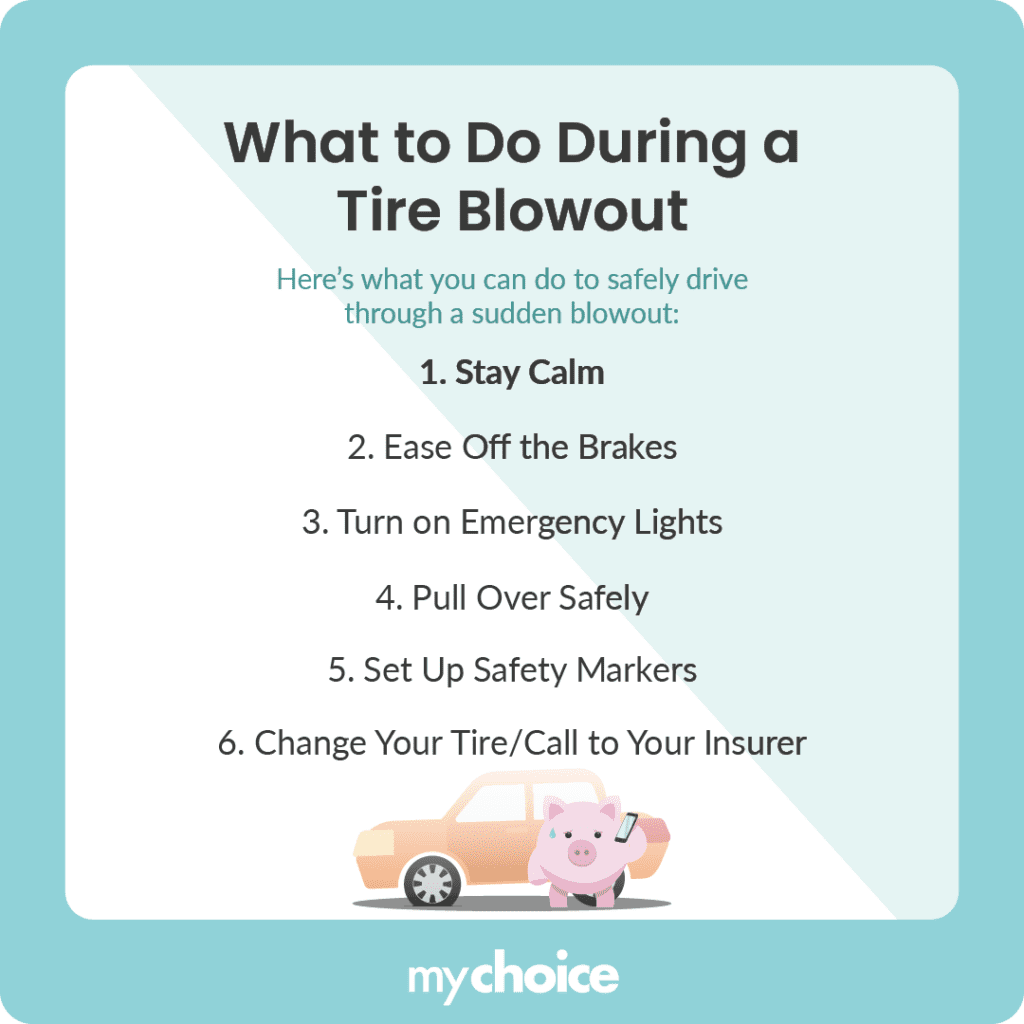Whether you’re a seasoned or novice driver, driving through a blowout can be a pretty nerve-wracking experience. But if you know what to look out for and are prepared for the worst, then you have a better chance of walking away from a blowout unscathed.
Does Insurance Cover Tire Blowouts?
Most auto insurance policies will cover damages caused by tire blowouts. However, some insurance providers won’t cover damages if the blowout is caused by an old tire, using the wrong type of tire for your vehicle, or overloading your car. Consult your insurance provider to find out what’s covered by your policy.
Signs of a Tire Blowout
If you don’t know the signs of a blowout, experiencing one firsthand can be confusing at first. Here are some tell-tale signs to watch out for so you know not to panic if you find yourself in the midst of a blowout:
- You hear a loud boom or bang coming from your tire, followed by a whooshing sound as air escapes the tire
- You hear a flapping sound as the deflated tire hits the road with each revolution
- Your car slows down and pulls to the side of the blown out tire
- You feel like you’re losing control of the steering wheel
What to Do During a Tire Blowout
Here’s what you can do to safely drive through a sudden blowout:

What Causes Tire Blowouts?
According to the Canada Safety Council, under-inflation is the leading cause of tire failure. Most blowouts happen because the tire doesn’t have enough air pressure to keep the tire from flexing beyond its limits. This causes the sides of the tire to make contact with the road surface. The friction and temperature of the road can erode the thin rubber on the sides of the tire, causing it to rip and explode.
Aside from under-inflation, here are some other common causes of blowouts:
How to Prevent Tire Blowouts
Driving safely, avoiding overloading your vehicle, and using the right tires for your car are all easy ways to prevent blowouts. Use all-weather tires in the summer and winter tires once temperatures stay below 7 degrees for seven consecutive days.
It’s also important to perform regular tire inspections to make sure your tires are road-worthy. Inspect your tires at least once a month and rotate your tires at least every six months.
Here’s a simple tire inspection checklist you should always keep handy:
Key Advice From MyChoice
- Tire blowouts can be dangerous, but they are avoidable.
- In the event of a blowout, remain calm, do NOT slam on your brakes, and slowly pull over to the side of the road to assess the damage.
- Regularly inspecting and maintaining your tires is your best bet at avoiding a future blowout.








